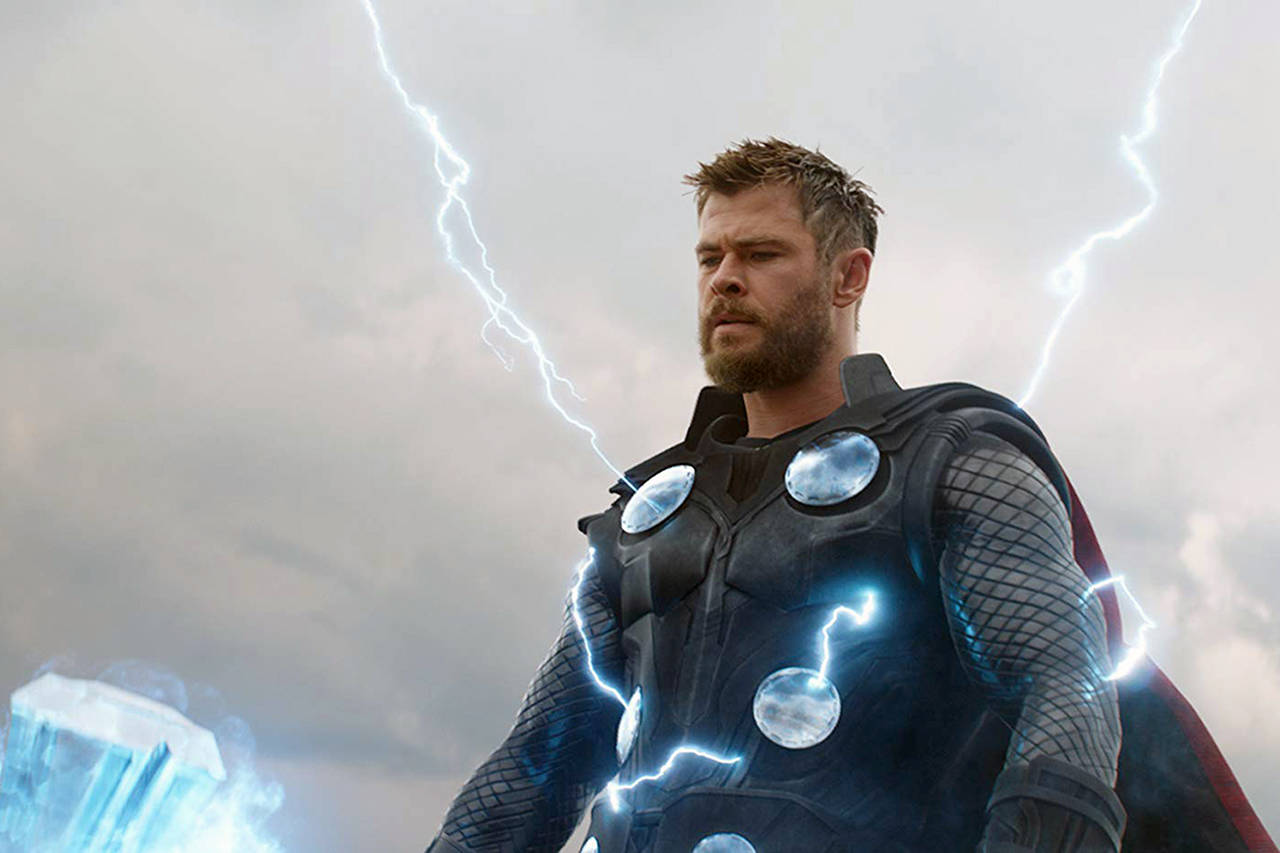Marvel’s box office record-shattering “Avengers: Endgame,” the fourth Marvel Cinematic Universe installment directed by Joe and his brother Anthony Russo, sees the original six Avengers grapple with distances of both time and space.
We caught up with the Russo brothers to discuss the ending of this chapter in Marvel and cinematic history, revisiting 11 years’ worth of mythology and the thorny theories of time travel.
Endings
Q: What was it like shooting Robert Downey Jr.’s last scenes as Iron Man?
Anthony Russo: Joe and I always say Robert is the hardest-working actor we’ve ever encountered. He is very dedicated to his craft and puts an enormous amount of his psychic energy into his performance. As you can imagine, this character is as much of an iconic experience for him as it is for anybody in the [audience]. That shot where he says “I am Iron Man” and snaps his fingers was the very last shot of the entire movie. We shot that back in January [during the final reshoots] and we all walked away from the movie after he performed that moment.
Q: Why was it important to have a grown-up Harley Keener, the kid from “Iron Man 3,” at Tony’s funeral?
JR: We were thinking about who was important in Tony’s life, just on a very grounded level. And that was a character who’d shared a special moment in time with Tony. It felt organic for him to be there.
Q: The funeral has quite a guest list. Were all of those actors actually in the same place for the scene?
JR: They were all actually there and that was perhaps the most [difficult] shot in all four movies that we’ve done for Marvel. We spent the entire day before we got them all out there with doubles [practicing] executing that shot.
Time travel
Q: What were the filmmaking challenges in revisiting previous MCU films and timelines?
JR: Probably just re-creating the sequences in a way that was accurate. [Chris] Pratt dancing [on Vormir], that’s some footage from seven years ago [in “Guardians of the Galaxy”] and some footage from him now and we had to intercut it.
People change, their looks change, so we really had to re-create everyone’s look. When Downey is watching the Avengers in that final moment with Loki where he says, “I’ll have that drink now,” that’s all of our current actors being made up to look like they did in the first “Avengers.” It was fun for us to create a different perspective for the audience.
Q: Should we assume that Spider-Man’s classmates were all dusted in “Infinity War,” which is why they haven’t aged?
AR: We don’t want to ruin anything from “Far From Home,” but certainly Ned was dusted. And whichever characters haven’t aged were also dusted. But I think you’ll discover that there are characters that are now in college.
Character arcs
Q: There’s been some backlash about Black Widow dying before her story was ever fully explored. What was the thinking behind her death in “Endgame”?
AR: We [thought] very specifically about what was the most satisfying ending for all of the main Avengers. And for Black Widow, she started as a villain. Basically through the films she finds mercy from Hawkeye, who has an opportunity to kill her and doesn’t. And then she gets a second chance, performing as a hero and becoming part of the Avengers. And now that she’s found a family like that, she wants to do what she can to serve that. That was pretty much her arc. … So even though she dies, there’s a nobility and a victory in her death, and we think there’s a hopefulness in that as well.
JR: Death shouldn’t always be perceived as a bad thing. When people die to save other people, it is a noble thing, and hopeful and heroic and perhaps the best outcome for a character possible.
Q: What went into getting chubby Thor’s look just right?
AR: Again, everything we do is grounded in story and character. If you look at the journey that Thor’s had, he’s had perhaps the most tragic arc of any of the Avengers. It’s truly Shakespearean: His mother died, his father died, his whole planet was destroyed at the end of “Ragnarok.” “Infinity War” opens with Thanos killing his brother and Heimdall and half of his existing people. He goes on a quest to avenge them and kill Thanos and he fails. You couldn’t drive that character any lower. And so where do you go from that moment? What is the road forward from all that pain and suffering?
A lot of times the road forward can be through humor and comedy, and that’s the road we decided to take with him. … I think it was really the only real way forward for that character, considering how difficult his road has been up to that moment.


